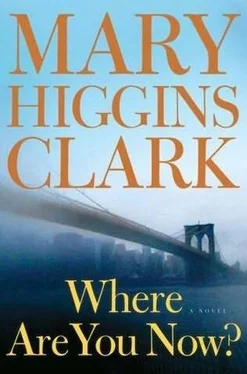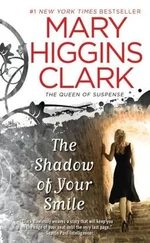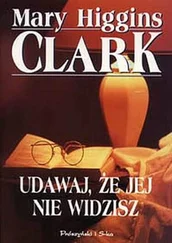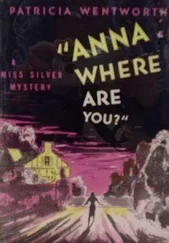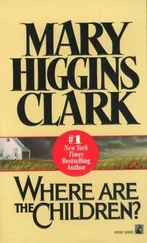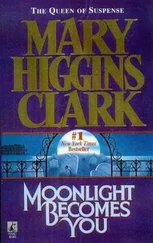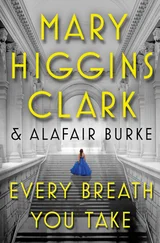
Mary Higgins Clark
Where Are You Now?
Perhaps the question I am most frequently asked is, “Where do you get your ideas?” The answer is simple. I read an article in a newspaper or magazine, and for some reason it sticks in my mind. That’s what happened when I read about a young man who disappeared thirty-five years ago from his college dorm and phones home every year or so, refusing to give any information about why he left or where he is.
His mother is now elderly, still hoping that one day before she dies she will see him again.
When a situation intrigues me, I ask myself three questions: Suppose? What if? Why?
I thought: Suppose a college senior disappeared ten years ago; what if he calls only on Mother’s Day; why did he disappear?
And then all the “supposes” and “what ifs” and “whys” start to tumble around in my mind, and a new novel begins.
Writing is always a marvelous adventure for me. By its very nature, of course, it is a solitary one. Fortunately, I have the steadfast guidance and encouragement of my forever editor and friend, Michael Korda, this year with the assistance of Senior Editor Amanda Murray. Heartfelt thanks, Michael and Amanda.
Sgt. Stephen Marron, NYPD, Ret., and Detective Richard Murphy, NYPD, Ret., are my splendid experts in police procedure and criminal investigation. Cheers and thanks, Steve and Rich.
Associate Director of Copyediting Gypsy da Silva and I have worked together for more than three decades. Always, my thanks to her, Lisl Cade my publicist, and my agent, Sam Pinkus, and my readers-in-progress, Agnes Newton, Nadine Petry, and Irene Clark.
Blessings, cheers, and love unending to the home front: John Conheeney, “spouse extraordinaire,” and all our children and grandchildren. We are indeed blessed.
Blossoms of spring and heaps of good wishes to you, my cherished readers. I hope you enjoy reading this tale as much as I’ve enjoyed writing it. Same time next year? You bet.
In memory of Patricia Mary Riker,
“Pat,”
Dear friend and wonderful lady
With love
Where are you now
Who lies beneath your spell?
– “The Kashmiri Song,”
Words by Laurence Hope,
Music by Amy Woodforde-Finden
I t is exactly midnight, which means Mother’s Day has just begun. I stayed overnight with my mother in the apartment on Sutton Place where I grew up. She is down the hall in her room, and together we are keeping the vigil. The same vigil we’ve kept every year since my brother, Charles MacKenzie Jr., “Mack,” walked out of the apartment he shared with two other Columbia University seniors ten years ago. He has never been seen since then. But every year at some point on Mother’s Day, he calls to assure Mom he is fine. “Don’t worry about me,” he tells her. “One of these days I’ll turn the key in the lock and be home.” Then he hangs up.
We never know when in those twenty-four hours that call will come. Last year Mack called at a few minutes after midnight, and our vigil ended almost as soon as it began. Two years ago he waited until the very last second to phone, and Mom was frantic that this slim contact with him was over.
Mack has to have known that my father was killed in the Twin Towers tragedy. I was sure that no matter what he was doing, that terrible day would have compelled him to come home. But it did not. Then on the next Mother’s Day, during his annual call, he started crying and gasped, “I’m sorry about Dad. I’m really sorry,” and broke the connection.
I am Carolyn. I was sixteen when Mack disappeared. Following in his footsteps, I attended Columbia. Unlike him, I then went on to Duke Law School. Mack had been accepted there before he disappeared. After I passed the Bar last year, I clerked for a civil court judge in the courthouse on Centre Street in lower Manhattan. Judge Paul Huot has just retired, so at the moment I’m unemployed. I plan to apply for a job as an Assistant District Attorney in Manhattan, but not quite yet.
First, I must find a way to track my brother down. What happened to him? Why did he disappear? There was no sign of foul play. Mack’s credit cards weren’t used. His car was in the garage near his apartment. No one of his description ever ended up in the morgue, although in the beginning, my mother and father were sometimes asked to view the body of some unidentified young man who had been fished out of the river or killed in an accident.
When we were growing up, Mack was my best friend, my confidant, my pal. Half my girlfriends had a crush on him. He was the perfect son, the perfect brother, handsome, kind, funny, an excellent student. How do I feel about him now? I don’t know anymore. I remember how much I loved him, but that love has almost totally turned to anger and resentment. I wish I could even doubt that he’s alive and that someone is playing a cruel trick, but there is no doubt in my mind about that. Years ago we recorded one of his phone calls and had the pattern of his voice compared to his voice from home movies. It was identical.
All of this means that Mom and I dangle slowly in the wind, and, before Dad died in that burning inferno, it was that way for him, too. In all these years, I have never gone into a restaurant or theatre without my eyes automatically scanning to see if just maybe, by chance, I will run into him. Someone with a similar profile and sandy brown hair will demand a second look and, sometimes, close scrutiny. I remember more than once almost knocking people over to get close to someone who turned out to be a perfect stranger.
All this was going through my mind as I set the volume of the phone on the loudest setting, got into bed, and tried to go to sleep. I guess I did fall into an uneasy doze because the jarring ring of the phone made me bolt up. I saw from the lighted dial on the clock that it was five minutes to three. With one hand I snapped on the bedside light and with the other grabbed the receiver. Mom had already picked up, and I heard her voice, breathless and nervous. “Hello, Mack.”
“Hello, Mom. Happy Mother’s Day. I love you.”
His voice was resonant and confident. He sounds as though he doesn’t have a care in the world, I thought bitterly.
As usual the sound of his voice shattered Mom. She began to cry. “Mack, I love you. I need to see you,” she begged. “I don’t care what trouble you may be in, what problems you have to solve, I’ll help you. Mack, for God’s sake, it’s been ten years. Don’t do this to me any longer. Please…please…”
He never stayed on the phone for as long as a minute. I’m sure he knew that we would try to trace the call, but now that that technology is available, he always calls from one of those cell phones with a prepaid time card.
I had been planning what I would say to him and rushed now to make him hear me out before he hung up. “Mack, I’m going to find you,” I said. “The cops tried and failed. So did the private investigator. But I won’t fail. I swear I won’t.” My voice had been quiet and firm, as I had planned, but then the sound of my mother crying sent me over the edge. “I’m going to track you down, you lowlife,” I shrieked, “and you’d better have an awfully good reason for torturing us like this.”
I heard a click and knew that he had disconnected. I could have bitten my tongue off to take back the name I had called him, but, of course, it was too late.
Knowing what I was facing, that Mom would be furious at me for the way I had screamed at Mack, I put on a robe and went down the hall to the suite that she and Dad had shared.
Читать дальше
